English Language
Head of Department: Mrs A Gorman
Exam board: CIE
Qualification name: English Language
Qualification codes: International A Level 9093
What you will study
The two year course consists of four key areas of study and development covered in four components.
Component 1: Passages
Students study, produce and compare the conventions of a wide range of written textual forms . For example: advertisements, brochures, leaflets, editorials, news stories, articles, reviews, blogs, investigative journalism, letters, podcasts, (auto)biographies, travel writing, diaries, essays, scripted speech, narrative writing, and descriptive writing.
Students also study the linguistic elements and literary features of texts, including: parts of speech / word classes, vocabulary, figurative language, phonology, morphology, rhetorical devices, voice, aspect, tense, modality, narrative perspective, word ordering and sentence structure, paragraph- and text-level structure and the formality/informality of tone.
Component 2: Writing
Students are required to write two pieces of factual or imaginative writing of approximately 400 and 600 words which are aimed at a specific audience. They are also required to write a commentary for the 400 word piece analysing their language choices.
Component 3: Analysis
Section A: Language change
In Section A, learners will explore how English has continually adapted to reflect changes in the social, cultural, political and technological contexts in which it has been used. Learners will explore the causes and consequences of language change in English, developing their knowledge of the topic through research, analysis, and an understanding of conventional methods of presenting historical language data.
Section B: Child language acquisition
In Section B, learners will explore the stages of early development (0–8 years) in child language acquisition, considering the various features and functions of spoken language use during this period, and familiarising themselves with a range of relevant theories, theorists and conventions within the field.
Component 4: Language Topics
Section A: English in the world
In Section A, learners will explore the history of English as a ‘global’ language; the development of standard and nonstandard forms of English, including the varieties used by first-language users outside the UK; and ethical considerations related to the continuing expansion of English usage around the world.
Section B: Language and the self
In Section B, learners will explore how language allows us to communicate our sense of self to others, as well as playing a highly significant role in the ongoing construction, determination and development of that self. Learners will study the degree to which language is innate, learned, or both; the ways in which language and thought are both interwoven with, and separable from, each other; and how we use language, both consciously and unconsciously, to construct and maintain social identities.
Why choose English Language?
Cambridge International A Level English Language offers learners the opportunity to study the English language and its use in contemporary communication. The syllabus explores the psychology of language and how it is used in a variety of forms that embrace the spoken and digital as well as the printed word. The course develops skills in textual analysis, writing creatively, identifying and using appropriate styles and registers for different contexts, and understanding how language is used to inform and persuade.
Course requirements
It is recommended that students have attained literacy skills at a level 5 in GCSE English Language.
Related subjects at Sixth Form
Subjects that relate well to this course include English Literature, History, Ethics and Philosophy, Politics, Psychology and Modern Languages.
Where could this lead?
English Language fosters skills in communication and leads to a wide range of career opportunities including: law, writing, journalism, broadcasting, personnel management, teaching, social work, copywriting, marketing and advertising.
Further important information
The English Language course requires students to write for a wide range of audiences and there are many opportunities for these skills to be fostered outside the classroom in writing for school publications and for competitions.


